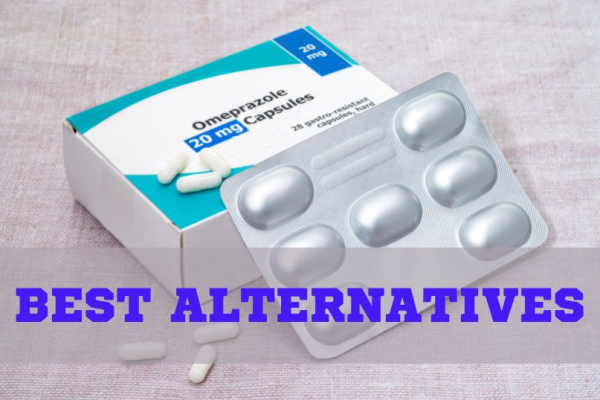Nexium Control is a brand name for an esomeprazole drug, available without a prescription for the treatment of heartburn and acid reflux in adults over 18 years of age. Nexium Control is available in the form of gastro-resistant tablets and capsules both containing 20mg of esomeprazole. Nexium Control is advertised as a product that gives relief from a single dose for 24 hours.Nexium Control review brings to you all the necessary information about over the counter esomperazole.
Table of Contents
- Nexium Control review of the licenced use
- What is heartburn?
- Nexium: review of possible side effects
- Can you take Nexium Control when pregnant?
- Nexium Control drug interactions
- Nexium review of the effectiveness
- Esomeprazole vs omeprazole? What is the difference?
- Is Nexium (esomeprazole) the best PPI available?
- Can Nexium Control be prescribed on NHS?
- Nexium Control where to buy
Nexium Control review of the licenced use
Esomeprazole belongs to a group of drugs called Proton Pump Inhibitors (PPIs) a common group of drugs which reduce the production of stomach acid. When prescribed, PPIs have other indications including treatment of ulcers and eradication of Helicobacter pylori.
Over the counter Nexium Control is licensed for the short-term treatment of heartburn, a burning sensation in the upper part of the gastrointestinal tract, in the chest and throat, caused by acid reflux. The general advice with over the counter PPIs is to see a GP if symptoms are not resolved after 14 days of Nexium use.
Nexium control may not give immediate relief of the symptoms, although the onset of action (the time it takes to work) is about one hour. It may take 2-3 days of continues use before symptoms resolve.
What is heartburn?
Nexium: review of possible side effects
As with all medicines, there is a risk of experiencing some side effects, when Nexium Control is taken. Although the whole list of possible side effects is long, the most common side effects (1 in 10 people may be affected) include:
- Headache
- Vomiting (being sick) and nausea (feeling sick)
- Growth of polyps in the stomach
A list of uncommon (1 in 100), rare (1 in 1000) and very rare side effects can be found in the product information leaflet.
Can you take Nexium Control when pregnant?
The direct impact of taking Nexium Control in pregnancy comes from medium-sized clinical studies which included 300-1000 pregnancy outcomes (emc, 21). Esomeprazole did not have advert effects on the fetus (no malformations or toxicity). Similarly, no toxicity was observed in animal studies during reproductive toxicity studies (ibid).
As with most over the counter medicines and in the case of Nexium Control as a ‘precautionary measure, it is preferable to avoid the use of Nexium Control during pregnancy.
Can other PPIs be used when pregnant?
The National Institute for Health and Care Excellence (NICE) sets treatment recommendations in the UK for healthcare professionals including doctors. In summary, the NICE guidelines on the management of dyspepsia (indigestion) in pregnancy recommend the following (NICE, 2022):
- In the first instance, lifestyle changes are usually recommended to manage indigestion in pregnancy, for example, eating smaller meals more frequently, regular physical activity and eating healthy well-balanced food, avoiding foods that can cause ‘irritation’ to the stomach, for example, caffeine, carbonated drinks or fruit juices).
- Use of antacid as first-line treatment. Antacids are commonly available over the counter in pharmacies in supermarkets with the Gaviscon range being one of the most popular.
- Acid-suppressing drugs such as esomeprazole or omeprazole should be considered as the last option due to limited evidence of their safety and effectiveness in the pregnancy.
According to the manufacturer’s recommendations, omeprazole can be used during pregnancy, advising at the same time about the lack of evidence regarding safety.
Manufacturers of pantoprazole (another PPI) informs no evidence of its harmfulness to the baby.
The preferred h2-blocker used for indigestion in pregnancy was ranitidine. Ranitidine was withdrawn from the market due to safety reasons. The manufacturer of famotidine (another H2-blocker) does not recommend the use of this drug in pregnancy unless it is clearly needed.
Related post:
- Best ranitidine alternative drugs.
- Omeprazole alternative medicines.
Nexium Control drug interactions
Like many other drugs, Nexium Control is metabolised by the liver. Nexium Control competes in the liver for some enzymes and therefore affected drugs cannot be fully metabolised (broken down). As a result, concomitant use with other drugs may increase their concentration. Some drugs affected include warfarin, phenytoin, citalopram, imipramine, clomipramine, and tacrolimus. For more information on interactions between Nexium Control and other drugs, read the product information leaflet or speak to your pharmacist for advice.
Nexium review of the effectiveness
Several studies confirm the effectiveness of esomeprazole 20mg. When compared with a placebo (a dummy pill) in randomised studies (patients not aware of what treatment they receive), esomeprazole was shown to be an effective treatment of heartburn symptoms, resulting in complete settlements of heartburn symptoms in patients who took a single dose of Nexium Control 20mg tablet, every 24 hours, in 2 week period (EMA, N.D.).
Esomeprazole vs omeprazole? What is the difference?
Both drugs, esomeprazole, and omeprazole belong to the same group of drugs, PPIs. Both drugs have the same chemical structure, however, a different arrangement of atoms ‘in space’ (the scientific name for this type of structure is optical isomer). This allowed AstraZeneca to market Nexium as a different drug from omeprazole, consequently calling it esomeprazole.
Is Nexium (esomeprazole) the best PPI available?
Some published research suggests that esomeprazole has an improved pharmacokinetic profile, resulting in more effective control of stomach acid production as compared to omeprazole or other PPIs (Johnson, 2003). There is also less variability in how different people respond to treatment with esomeprazole (ibid). When compared to omeprazole 20mg, esomeprazole 20mg and 40mg had superior outcomes in three different areas: consistency, duration of action 24-hour cycle and the overall reduction of stomach acid production (Dent, 2003). As suggested by different scientific papers esomeprazole is more effective PPI than omeprazole. A large trial of over 5000 patients confirmed that esomeprazole 40mg is more efficacious than lansoprazole, another PPI (Scott, 2002).
Can Nexium Control be prescribed on NHS?
When a common drug is prescribed, in most cases prescription is issued for a generic medication. The same applies to esomeprazole. Patients are usually prescribed esomeprazole rather than Nexium. Generic medicines are very often cheaper than branded products, therefore it is unlikely for patients to have Nexium prescribed instead of esomeprazole. Some patients may be prescribed Nexium 20mg or 40mg tablets, rather than Nexium Control. Nexium Control tablets are equivalent to Nexium 20mg tablets (prescription-only medication).
In the management of dyspepsia/heartburn NICE guide does not specify which PPI should be offered in the first place, however, in practice, esomeprazole (generic or Nexium brand) is considerably less commonly prescribed than other PPIs, mainly due to the higher cost of both drugs.
Supply of Nexium 20mg tablets on prescription costs NHS cost around £18 per box of 28 tablets, supply of generic esomeprazole 20mg tablets costs around £6.00, whereas omeprazole 20mg capsules (most popular PPI) cost around £1.
Patients who were issued generic esomeprazole may request Nexium to be dispensed by a pharmacy, however, this request would almost always be declined due to the price difference.
Nexium Control where to buy
Nexium can be purchased from all supermarkets including Tesco, Asda, Sainsbury’s, Morrisons and others. Most pharmacies stock Nexium Contol. Nexium Control is widely available online, for example on Amazon.co.uk


References:
Dent, J. (2003), Review article: pharmacology of esomeprazole and comparisons with omeprazole. Alimentary Pharmacology & Therapeutics, 17: 5-9. Available at: https://doi.org/10.1046/j.1365-2036.17.s1.2.x Accessed on 12/12/2022
EMA (N.D.). Nexum control 20mg gastro-resistant tablets. Summary product characetereisitics. Available at: https://www.ema.europa.eu/en/documents/product-information/nexium-control-epar-product-information_en.pdf Accessed on 12/12/2022
Johnson, DA (2003). Review of esomeprazole in the treatment of acid disorders. Expert Opin Pharmacother. 2003 Feb;4(2):253-64. Available at: https://www.tandfonline.com/doi/abs/10.1517/14656566.4.2.253 Accessed on 12/12/2022
NICE (2022). Dyspepsia – pregnancy-associated: Scenario: Management. Available at: https://cks.nice.org.uk/topics/dyspepsia-pregnancy-associated/management/management/ Accessed on 13/12/2022.
Scott, L.J., Dunn, C.J., Mallarkey, G. et al. Drugs (2002) 62: 1503. https://doi.org/10.2165/00003495-200262100-00006 Accessed on 12/12/2022



![Can you buy fexofenadine over the counter? [Answered]](https://chemist.onl/wp-content/uploads/2022/03/can-you-buy-fexoenadine-over-the-counter.jpg)

